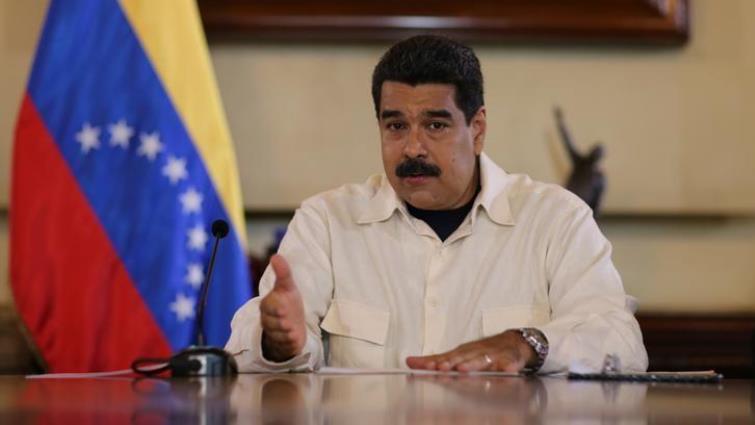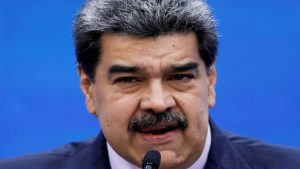A group of member states in support of the government of President Nicholas Maduro has met with the country’s Foreign Minister in what he called a meeting in defence of the principles of International Law and the UN Charter.
The country’s top diplomat has been a regular feature at UN Headquarters over the last number of weeks as he lobbies countries in support his government after the United States and over three-dozen countries recognized opposition leader and head of the National Assembly Juan Guaido as Interim President.
As Guaido leads efforts to bring in U.S.-sponsored aid across the Colombian border against the wishes of the Government, the UN has warned against the use of lethal force.
Guaido, who has traveled to the border with Colombia, has vowed to bring in the stockpiles of aid Saturday in defiance of the Maduro Government with reports that Venezuelan soldiers already opened fire on civilians attempting to bring aid across the southern border with Brazil. This was Foreign Minister Jorge Arreaza characterising the said sitting on the border.
“It’s a show, it’s a spectacle, it’s trying to force so-called humanitarian aid, we don’t even know what is in those boxes and we are working with the UN, we are working with the agencies of the UN. Yesterday President Maduro said that we accept all the help which is under the framework of the UN, even of the EU, but it has to be done by the right way. We have the right resources as to pay whatever we need – you know what’s difficult, to import, to buy when are blocked by the US, the banks don’t want to work with you and the ships don’t want to come to Venezuela because they are afraid of the sanctions. So the UN will help us to buy things from all over the world – medicines and food for our people and we will pay for it. This is going to be cooperation between the state in Venezuela, the Government of President Maduro and the UN.”
Over 40 countries, including South Africa, joined a UN group of friends that met in solidarity with the Maduro government and is working to collectively take action through multilateral fora in support of international law.
“We are creating this group which has been the initiative of some friends in order to protect and defend the principles of international law, the principles of the Charter of the UN and to protect our peoples in order for them to take their decisions and to respect the international law and national law of the countries and to avoid any kinds of threats with the use of force, to stop the war, that’s why we created this group.”
Russia has introduced a draft Security Council resolution criticizing attempts to intervene “in matters which are essentially within the domestic jurisdiction of Venezuela” – but it remains unclear if the text will be put to a vote.
Ambassador Vassily Nebenzia says on Friday, “That depends on the developments that might start even tomorrow about which we are very concerned not me but the whole group that was in this room. Tomorrow that something might happen that could trigger unpredictable events, from there we will proceed, we’ll see what happens tomorrow, we pray nothing happens, we pray that no violence is there, we pray that it will not be the start of a civil strife in Venezuela. We want that this not become a provocation to start much more dangerous events.”
The United States has called on the Venezuelan military to stand aside and to –in its words- do what is right for the Venezuelan people. Bolivia’s Ambassador Sacha Llorenty Soliz was also at the UN meeting.
“Mainly it was about the UN Charter and International Law and right now we are in a moment in which the ones who are against war, the ones who are against the violation of the principles of the UN Charter together, and we want to send a strong message that we will be beside the Venezuelans Government, the Venezuelan people against the threats that the United States is imposing against Venezuela.”
The Foreign Minister was asked pointedly what orders had been given to the military if unarmed civilians tried to bring aid across the border.
Minister Arreaza was clear that the military was there to protect the sovereignty of the country and that they would not take action in a disproportionate fashion against their own people.
UN Chief Antonio Guterres has called for violence to be avoided as humanitarian aid becomes the focus of a power struggle between to the two sides in the oil-rich Latin American country.






